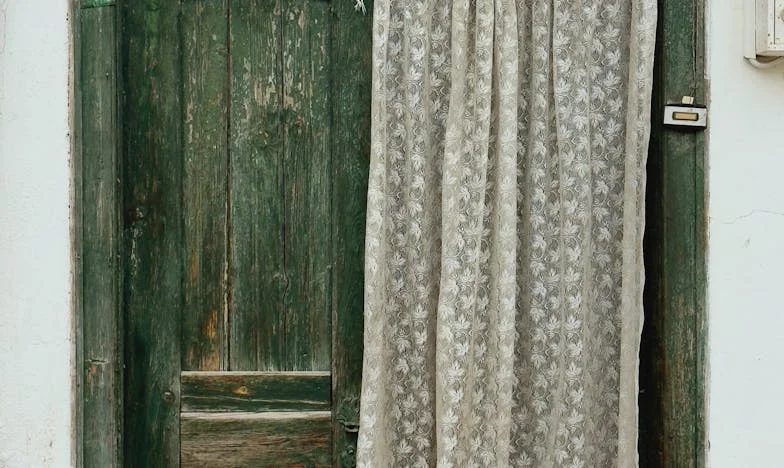Alone Against the Town: My Fight for Dignity as a Single Mom in Rural America
“You know, people talk.”
That’s what my mother said the day I told her I was keeping the baby. I stood in her kitchen with trembling hands, the old linoleum squeaking under my sneakers, as her words cut through the silence like a knife. She didn’t look at me, just kept scrubbing at a plate that was already clean. “You’re only twenty-three. This isn’t how it’s supposed to go, Lauren.”
I wanted to scream. To tell her that I’d already replayed every possible outcome a thousand times, and this—this was the only one I could live with. Instead, I stared at the faded rooster print curtains and felt the weight of the town pressing in, even behind closed doors.
Brooksville, North Carolina, is the kind of place where everyone waves at each other on Main Street but keeps a running tally of every misstep. My high school boyfriend, Tyler, left for the Army before I could even say the words “I’m pregnant.” His name still hung on everyone’s lips, a golden boy gone to serve his country, while I was left to serve up rumors and shame at the local diner.
I remember the first Sunday I walked into St. Mark’s Church with my belly showing. The pews creaked as heads turned, whispers fluttering like moths. Mrs. Henderson clucked her tongue; Pastor Jim gave me a smile that was just a little too forced. I wanted to disappear, to take the baby growing inside me and run until the gossip faded into nothing.
My older sister, Courtney, was no help. She came by to drop off a casserole—chicken and rice, her specialty—but her eyes lingered on my stomach longer than necessary. “If you’d just told Tyler sooner…” she started, but I cut her off.
“He’s gone, Court. There’s nothing to tell.”
She sighed, setting the dish on the counter. “I just don’t want you to make things harder than they already are.”
I swallowed the lump in my throat. “They can’t get much harder.”
When Mason was born, the hospital room was quiet except for his cries and my broken sobs. My mother held him once, kissed his forehead, and left before the sun rose. No balloons, no excited relatives—just me, a sleeping baby, and the hum of the fluorescent lights. I felt both powerful and utterly alone.
The first year was a blur of exhaustion and stubbornness. Every time I walked into the Piggly Wiggly, Mrs. Turner would eye my cart, as if checking to see if I was buying diapers with food stamps. The supermarket became a battlefield; the playground, a minefield of side-eyes from PTA moms in yoga pants. It was always the same question, whether spoken or not: Where’s the father?
I found solace in the little moments with Mason—his gummy smiles, the way he’d grasp my finger with a strength that seemed impossible for such tiny hands. I clung to those moments, even as the world tried to chip away at my resolve.
But the hardest battle was at home. My mother, once my confidante, turned into a stranger. Arguments simmered over dinner. The night I told her I’d applied for college classes online, she shook her head. “You need to focus on Mason. You can’t have it all, Lauren.”
“Why not?” I snapped. “Why is it always me who has to give something up?”
She didn’t answer. She never did. Instead, she retreated into silent disappointment, her absence echoing louder than any words.
One night, after a particularly rough shift at the diner, I came home to find Courtney sitting on my porch steps, arms wrapped around her knees. “I heard Mom’s been telling people you’re struggling.”
I laughed bitterly. “Is that supposed to be a secret?”
She looked up at me, her eyes softening. “You know, you’re stronger than any of us ever gave you credit for.”
I sat beside her, the humid Carolina air pressing against my skin. “It doesn’t feel like it. Every day I wake up and wonder if I’m messing him up. If he’s going to hate me for doing this alone.”
Courtney put her arm around me. “He won’t. He has you. And you’re enough.”
I wish I could say things got easier after that. They didn’t. But I did learn to find pride in the small victories. When Mason took his first steps, I cheered so loud the neighbors’ dog started barking. When I got my first ‘A’ in my online class, I taped the grade report to the fridge and let myself smile.
The town never really embraced me. At the annual Fourth of July parade, I stood on the sidelines with Mason on my hip while other families waved from floats. People still whispered. Some days, their stares made my skin crawl. But I stopped letting it define me.
A few months ago, Tyler came back on leave. He stopped by the diner, his uniform crisp, his smile sheepish. He asked about Mason, about me. For a moment, I wanted to scream at him, to make him feel the loneliness I’d carried. Instead, I just said, “We’re doing fine.”
Because we are. Not perfect, not easy, but fine. Sometimes, late at night, I sit by Mason’s crib and watch him breathe, wondering what kind of world he’ll grow up in. Will he carry the weight of our small town’s judgment, or will he learn, as I did, that dignity comes from within?
How many of us are living our lives under someone else’s microscope? How long before we stop letting their judgment define our worth?
